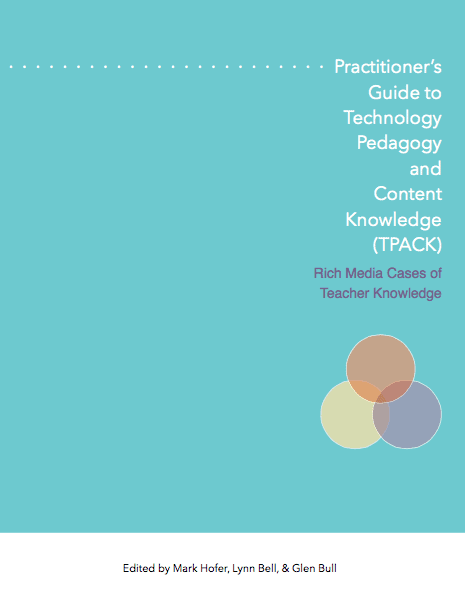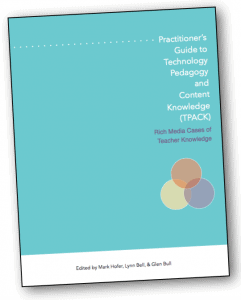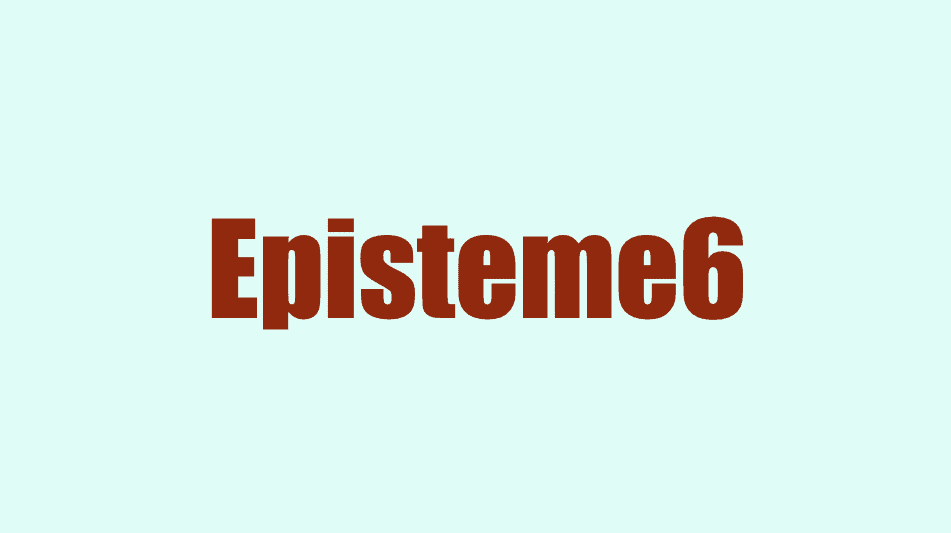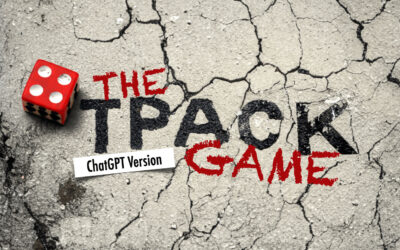The TPACK framework is a theoretical framework that seeks to influence practice. And most gratifyingly (for Matt Koehler and myself) it appears to have had a significant impact in that area. That said, the field lacked concrete, rich examples of TPACK in practice. Cases that would (quoting Darling-Hammond & Snyder) “add context to theory” highlighting the rich telling detail, as well as local contextual factors that are often lost when teaching is discussed in more general terms.
This gap has now been filled with a lovely ebook by my friends and colleagues Mark Hofer, Lynn Bell and Glen Bull. The Practitioner’s guide to technology pedagogy and content knowledge (TPACK): Rich media cases of teacher knowledge focuses on developing rich “exemplary” cases of practice, and boy does it deliver. Consider what is included in each of the cases included in the book:
[Each of the cases] include a number of media elements, including short video clips, student and teacher artifacts, and links to digital tools and resources. The video footage is crucial to these cases and is used in various ways: to highlight teacher thinking, to capture salient moments of TPACK in action, and to highlight student learning. The teacher interviews add to the narrative included in the text, rather than being repetitive. The Classroom in Action and Student Work videos show real teachers and students in real classrooms engaging in unscripted instruction.
Mark, Lynn and Glen need to be applauded for taking on this task and creating this wonderful resource that is of value to practitioners, researchers and teacher educators alike. Matt, Andrea Zellner and I wrote an introductory chapter (citation and link to both the chapter and the entire ebook below).
Koehler, M. J., Mishra, P., & Zellner, A. L. (2015). Mind the gap: Why TPACK case studies? In M. Hofer, L. Bell, & G. Bull (Eds.), Practitioner’s guide to technology pedagogy and content knowledge (TPACK): Rich media cases of teacher knowledge (pp. 2.1-2.8). Waynesville, NC: Association for the Advancement of Computing in Education (AACE). [Links above first to the actual chapter we wrote and then to the eBook available on the LearnTechLib website].






0 Comments